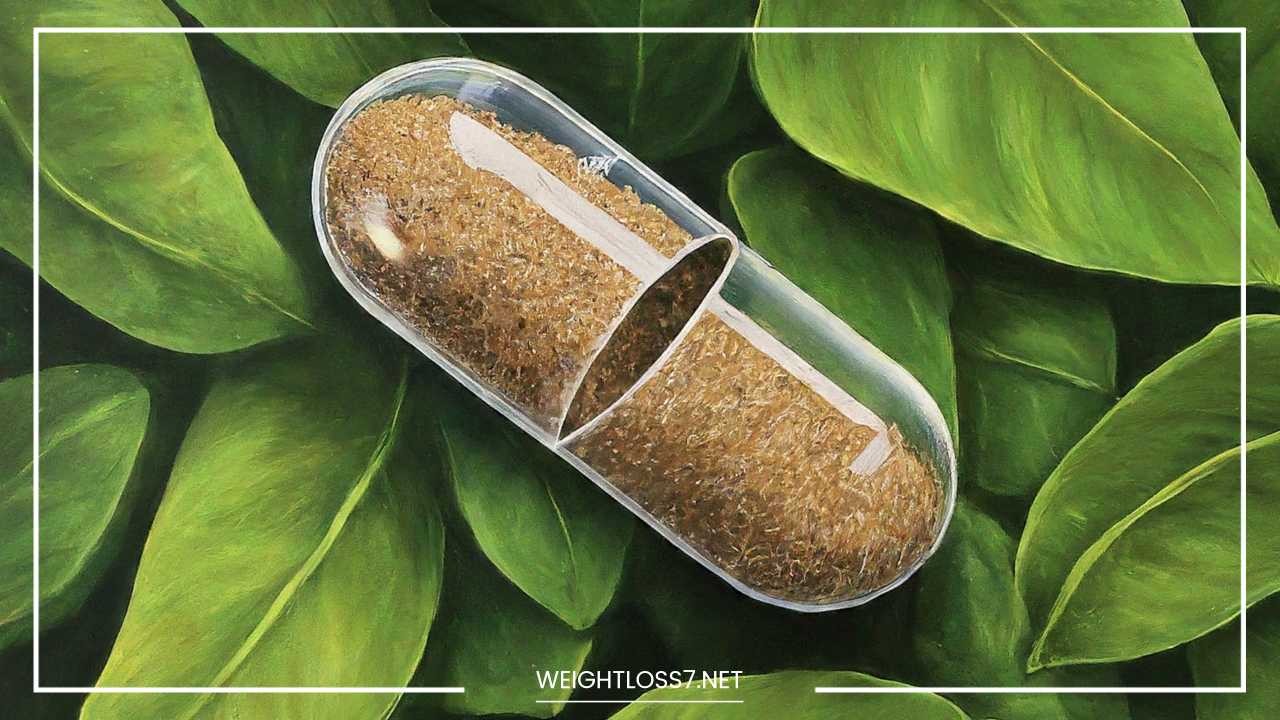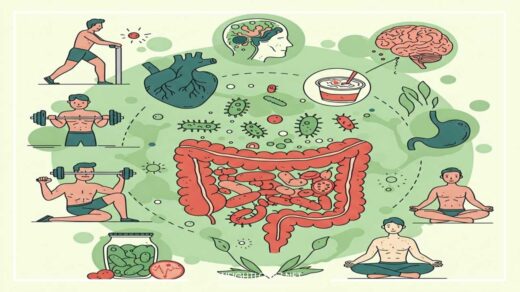Fiber Pills: A Guide to Boosting Digestion & Overall Health

Fiber Pills
Fiber Pills: A Comprehensive Guide to Boosting Digestive Health and Beyond
Fiber: it’s not the most glamorous nutrient, but it plays a critical role in keeping our digestive system running smoothly and our overall health in check.
While fruits, vegetables, whole grains, and legumes are the ideal sources of fiber, many of us struggle to meet our daily recommended intake through diet alone. This is where fiber pills, also known as fiber supplements, come in.
This comprehensive guide dives deep into the world of fiber pills. We’ll explore the different types, their potential benefits, and any drawbacks to consider.
We’ll also discuss how to choose the right fiber supplement for your individual needs, maximize its effectiveness, and minimize side effects.
Finally, we’ll delve into the science behind fiber’s health benefits, exploring its impact on digestion, cholesterol, blood sugar, weight management, and even gut health.
The Powerhouse of Fiber: Soluble vs. Insoluble
Before we delve into supplements, let’s understand the two main types of fiber and their functions:
1. Soluble Fiber: This superstar dissolves in water, forming a gel-like substance in your gut. This gel offers a range of benefits:
- Blood Sugar Regulation: Soluble fiber slows down the absorption of sugar into your bloodstream, helping to maintain healthy blood sugar levels. This can be particularly beneficial for individuals with prediabetes or type 2 diabetes.
- Cholesterol Control: Soluble fiber binds to cholesterol in the digestive system, preventing it from being absorbed into the bloodstream. This can contribute to lowering LDL (“bad”) cholesterol levels and improving your overall heart health.
- Promotes Fullness: The gel-like consistency of soluble fiber helps you feel fuller for longer, potentially reducing calorie intake and aiding in weight management efforts.
2. Insoluble Fiber: This dietary warrior doesn’t dissolve in water, but it plays a crucial role in digestion nonetheless:
- Smooth Sailing for Digestion: Insoluble fiber adds bulk to your stool, promoting regularity and preventing constipation. It acts like a natural scrub brush, moving things along smoothly in your digestive tract.
- Gut Health Booster: While insoluble fiber doesn’t directly feed the good bacteria in your gut, it helps to create a favorable environment for them to thrive.
The Symphony of Benefits: Why Consider Fiber Pills?
While incorporating a variety of fiber-rich whole foods into your diet is the gold standard, it’s not always easy. Here are some situations where fiber pills can be a helpful addition to your routine:
- The Low-Fiber Blues: If your diet is dominated by processed foods, refined carbohydrates, and sugary drinks, you’re likely falling short on fiber intake. Fiber pills can help bridge this gap and ensure you’re getting enough of this essential nutrient.
- Constipation Conquering: Struggling with irregularity? Fiber supplements, particularly those high in insoluble fiber, can help promote regularity and ease constipation symptoms.
- Cholesterol Control Companions: As part of a heart-healthy diet, fiber supplements, particularly those with soluble fiber, can be a valuable tool in lowering LDL cholesterol levels.
- Blood Sugar Balancing Buddies: Fiber can be beneficial for individuals managing blood sugar levels, as it helps with sugar absorption.
- Gut Health Champions: Certain fiber supplements, like those containing prebiotic inulin, can help nourish the good bacteria in your gut, promoting a healthy gut microbiome.
The Diverse Cast of Fiber Supplements: Choosing the Right One
Just like actors fit different roles, various fiber supplements address specific needs. Here’s a breakdown of some common types:
- Psyllium (Metamucil): A popular choice, psyllium forms a gel in your gut, promoting regularity and aiding in lowering cholesterol.
- Methylcellulose (Citrucel): This water-absorbing fiber adds bulk to stool, acting as a laxative to treat constipation.
- Polycarbophil (FiberCon): Similar to methylcellulose, polycarbophil helps with constipation and may also contribute to lowering cholesterol.
- Inulin: This prebiotic fiber feeds the good bacteria in your gut, promoting gut health and potentially boosting immunity.
- Wheat Bran: A good source of insoluble fiber, wheat bran helps regulate bowel movements and promotes regularity.
Beyond Benefits: Considering the Drawbacks
Fiber supplements, while valuable, aren’t a magic bullet. Here’s a balanced look at their potential drawbacks:
- Not a Whole Food Replacement: Fiber pills lack the vitamins, minerals, antioxidants, and other beneficial nutrients found in whole food sources. They should complement, not replace, a balanced diet.
- Gas, Bloating, and Cramps: These are common side effects, especially when starting fiber supplements. They usually subside as your body adjusts.
- Medication Interactions: Fiber can affect how your body absorbs certain medications. Always consult your doctor before taking fiber supplements if you’re on medication.
Finding Your Perfect Fiber Match: A Guide to Choosing Wisely
With a variety of fiber supplements available, choosing the right one depends on your individual needs and goals. Here are some tips to navigate the selection process:
- Know Your Goals: Do you want to address constipation, manage cholesterol, or promote gut health? Different types of fiber cater to specific needs.
- Label Literacy: Become a label-reading pro! Look for the type of fiber (soluble, insoluble, or a blend), the serving size, and the daily recommended dosage.
- Start Low, Go Slow: Avoid diving headfirst into a high dose. Begin with a low dose and gradually increase it over a week or two to minimize bloating and gas.
- Water is Your Best Friend: Remember, fiber absorbs water. Aim for eight glasses of water daily to ensure smooth functioning.
- Talk to Your Doctor: A doctor’s guidance is invaluable. Discuss fiber supplements with your doctor, especially if you have any underlying health conditions or take medications.
Maximizing Benefits and Minimizing Side Effects: Getting the Most Out of Fiber Pills
Now that you’ve chosen the right fiber supplement, let’s explore how to maximize its effectiveness and minimize potential side effects:
- Hydration is Key: As mentioned earlier, fiber absorbs water. Staying hydrated with plenty of water helps prevent constipation and aids in the smooth passage of stool.
- Mealtime Matters: Taking fiber pills with meals can help slow down digestion and potentially reduce side effects like bloating.
- Gradual Introduction: Your gut needs time to adjust to the increased fiber intake. Start with a low dose and gradually increase it over a week or two to allow your body to adapt.
- Listen to Your Body: Pay attention to how your body reacts. If you experience excessive gas, bloating, or cramping, adjust the dose or try a different type of fiber supplement.
- Consider Alternatives: If fiber pills cause significant discomfort, explore other ways to increase your fiber intake. This could include gradually incorporating more fiber-rich foods into your diet or trying a gentler fiber powder.
The Science Behind the Benefits: How Fiber Works Its Magic
Fiber’s health benefits aren’t just a fad; they’re backed by science. Here’s a deeper dive into how fiber works its magic in your body:
- Digestion Made Easy: Fiber adds bulk to stool, promoting regularity and helping food move smoothly through your digestive system. This can help prevent constipation and hemorrhoids.
- Cholesterol Control Champion: Soluble fiber binds to cholesterol in the digestive tract, preventing its absorption into the bloodstream. This helps lower LDL (“bad”) cholesterol levels and improve your cardiovascular health.
- Blood Sugar Balancing Act: Fiber plays a crucial role in blood sugar control. By slowing down the absorption of sugar into the bloodstream, it helps maintain healthy blood sugar levels, which is particularly beneficial for individuals with prediabetes or type 2 diabetes.
- Weight Management Warrior: Feeling full for longer is key for weight management. Fiber helps you feel satiated, potentially reducing calorie intake and aiding in weight loss efforts.
- Gut Health Guardian: The good bacteria in your gut thrive on a diet rich in fiber. Prebiotic fibers like inulin serve as food for these beneficial bacteria, promoting a healthy gut microbiome. A healthy gut microbiome has been linked to a stronger immune system, improved digestion, and even better mental health.
Fiber Pills: A Valuable Tool, But Not a Replacement
Fiber pills can be a valuable tool for increasing your fiber intake and addressing specific health concerns. However, it’s important to remember that they are not a replacement for a balanced diet rich in fiber-rich whole foods.
These whole foods provide essential nutrients beyond fiber, like vitamins, minerals, and antioxidants, that fiber pills lack.
Expanding Our Knowledge: Exploring Advanced Topics on Fiber
This comprehensive guide has covered the essential aspects of fiber pills, from their benefits and drawbacks to choosing the right type and maximizing their effectiveness.
However, the world of fiber is vast, and there’s always more to learn. Here, we’ll delve into some advanced topics to further your understanding:
1. The Fiber Spectrum: Beyond Soluble and Insoluble
While soluble and insoluble fiber are the two main categories, there’s a fascinating spectrum within each type. Different types of soluble and insoluble fiber offer unique benefits:
- Viscous Soluble Fiber: This type forms a thick gel in the gut, promoting feelings of fullness and potentially aiding in weight management. Examples include psyllium and oat beta-glucan.
- Fermentable Soluble Fiber: This prebiotic fiber feeds the good bacteria in your gut, promoting gut health. Inulin is a prime example.
- Slightly Fermentable Soluble Fiber: This type offers a balance between gel formation and gut health benefits. Pectin, found in fruits, falls into this category.
- Insoluble Bulking Fiber: This type adds bulk to stool, promoting regularity. Wheat bran is a good example.
- Insoluble Gritty Fiber: This type helps move food through the digestive system and may be beneficial for those with sluggish digestion. Cellulose, found in vegetables, is an example.
Understanding these subcategories within the soluble and insoluble fiber groups can help you choose a fiber supplement that targets your specific needs.
2. The Fiber-Microbiome Connection: A Deeper Look
The gut microbiome, the community of trillions of bacteria residing in your gut, plays a vital role in digestion, immunity, and even mood. Fiber acts as a prebiotic, nourishing the good bacteria in your gut. This, in turn, leads to a thriving microbiome with numerous health benefits.
- Short-Chain Fatty Acids (SCFAs): When good bacteria in your gut ferment fiber, they produce SCFAs. These SCFAs have anti-inflammatory properties and may contribute to gut health, weight management, and even lower the risk of certain cancers.
3. Fiber and Emerging Research: Exploring New Frontiers
Research on fiber is constantly evolving. Here are some exciting areas of exploration:
- Fiber and Cognitive Function: Studies suggest a potential link between adequate fiber intake and improved cognitive function, including memory and focus.
- Fiber and Personalized Nutrition: With advancements in gut microbiome testing, the future might hold personalized fiber recommendations based on your unique gut bacteria composition.
4. Fiber Beyond Supplements: Additional Strategies to Increase Intake
While fiber supplements can be helpful, here are some strategies to naturally boost your fiber intake through diet:
- Start Your Day with Fiber: Include fiber-rich options like oatmeal, berries, nuts, or chia seeds in your breakfast routine.
- Snack Smart: Opt for fiber-rich snacks like fruits with the skin on, vegetables with hummus, or air-popped popcorn.
- Make Whole Grains Your Ally: Choose whole grains like brown rice, quinoa, or whole-wheat bread over refined grains.
- Embrace Legumes: Beans, lentils, and chickpeas are excellent sources of fiber and protein.
- Don’t Forget the Nuts and Seeds: Sprinkle nuts and seeds on salads, yogurt, or oatmeal for a fiber and healthy fat boost.
The Final Word: A Balanced Approach to Fiber
Aim to incorporate a variety of fiber-rich fruits, vegetables, whole grains, and legumes into your diet. If you struggle to meet your daily fiber needs, consider a fiber supplement to bridge the gap.
Consult your doctor to determine if fiber supplements are right for you and choose the type that best suits your individual needs.
Remember, consistency is key: by incorporating fiber, either through diet or supplements, you’re investing in your digestive health and overall well-being.

















